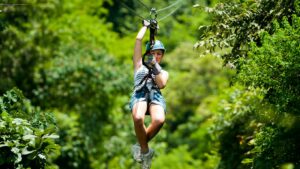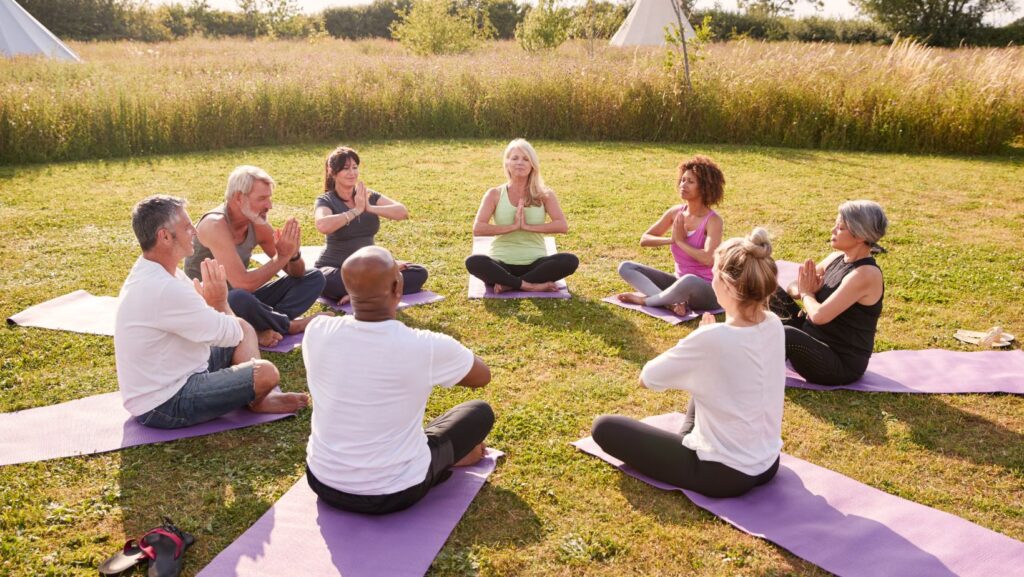Travel isn’t just about ticking off destinations anymore. It’s evolving, with a growing trend towards wellness tourism. This shift reflects the rising global consciousness about health, wellbeing, and the need for recuperation in our fast-paced world.
This article delves into the latest wellness travel trends, illuminating how they’re transforming the way we view and experience travel. Stay tuned to discover what’s driving this trend and how you can incorporate wellness into your next vacation.
Wellness Travel Trends

In the wellness tourism landscape, several trends stand out. Personalized retreats for mental health, often featuring mindfulness activities like meditation and journaling, rise in popularity. These retreats help individuals de-stress, cope with burnout, and build emotional resilience. For example, personalized retreats in Costa Rica offer stress-management programs designed for solo travelers.
The demand for spa resorts focusing on holistic treatments soars. These go beyond traditional massages to include acupuncture, wellness consultation, and nutritional therapy. A testament to this trend, Thailand’s detox wellness resorts capitalize on the growing demand for holistic healing.
Outdoor wellness activities gain traction, with travelers preferring nature-immersive experiences such as forest bathing, hiking, and open-water swimming. These activities align with the philosophy of enhancing physical, mental, and emotional wellbeing. Evidence of this trend appears in New Zealand’s adventure wellness tourism, attracting travelers keen on combining thrill with tranquility.
Definition and Importance of Wellness Travel

Wellness Travel constitutes journeys that prioritize enhancing one’s mental, physical, and spiritual well-being. It’s a subset of the broader tourism industry, designed to help travelers maintain healthy practices, tap into self-discovery and renewal, or kick-start a lifestyle change. Examples of wellness travel include health-focused retreats, meditation camps, and fitness holidays.
It’s crucial due to several compelling reasons. Firstly, wellness travel fosters a rejuvenating experience, ensuring travelers return home physically refreshed and mentally revitalized. It’s an antidote to unhealthy lifestyle habits by inspiring a wellness-oriented lifestyle. Secondly, it addresses the mounting work stress and burnout among professionals. Thirdly, it sparks personal growth. Enhanced mindfulness, greater self-awareness, and a balanced perspective on life are some potential benefits. Lastly, wellness travel often intertwines with sustainability, promoting eco-friendly practices, and contributing towards responsible tourism.
Factors Influencing Wellness Travel Trends

Several elements impact wellness travel trends, setting the stage for their ebb and flow. Public awareness of wellness, for instance, plays an instrumental role. Consider how mainstream recognition of meditation and yoga practices in the past decade has invigorated individuals’ interest in novel wellness experiences, amplifying trends such as yoga retreats. Similarly, perceptions about mental health influence traveling decisions. Recently, stress relief and mental rejuvenation have emerged as primary motivators for wellness getaways.
Additionally, technological advancements have altered the wellness tourism landscape. Apps and online platforms enable people to access mindfulness programs and track fitness goals while traveling, allowing for personalized wellness experiences. Environmental consciousness, too, directs these trends. A striking example is the rise in eco-friendly wellness retreats, where travelers can indulge their wellness pursuits without harming the environment. Overall, a confluence of public sentiment, technological progress, and eco-awareness shapes the trajectory of wellness travel trends.
Experiential Wellness Travel: A Closer look at Bali
Wellness travel’s rise isn’t surprising, given the global focus on health and wellbeing. It’s clear that travelers are seeking more than just sightseeing; they’re after rejuvenation and personal growth. Bali’s yoga retreats and Switzerland’s digital detoxes are prime examples of this shift.
Personalized retreats focusing on mental health and mindfulness activities are gaining traction, with Costa Rica leading the way. Spa resorts offering holistic treatments are also in high demand, and Thailand’s detox wellness resorts are a testament to this trend. Outdoor wellness activities, like forest bathing and hiking, are becoming increasingly popular, with New Zealand’s adventure wellness tourism paving the way.
Wellness travel, with its focus on mental, physical, and spiritual well-being, is more than just a trend—it’s a lifestyle choice. It’s a way to combat work-related stress and burnout, and a path to personal growth through mindfulness and self-awareness.

